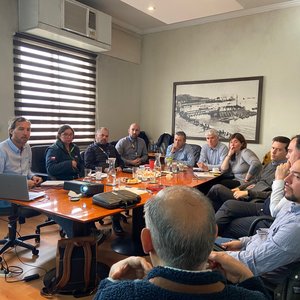Two researchers from Skretting ARC recently successfully defended their doctoral theses. Dr. Vibeke Vikeså (pictured) defended her thesis entitled “Regulation of appetite and growth of Atlantic salmon (Salmo salar L.) and effect of water oxygen, temperature and dietary energy” on 27 June at the National Institute of Nutrition and Seafood Research (NIFES) in Bergen and Dr. Fabio Cervellione defended his thesis entitled “Microscopical analysis of the hepatopancreas in whiteleg shrimp (Penaeus vannamei) using computer-assisted image analysis” at Ghent University in Belgium on 20 June.
The aim of Dr. Vikeså’s research was to increase the knowledge on appetite and growth regulation in seawater adapted Atlantic salmon in relation to high water temperature, low oxygen conditions and dietary energy concentration.
Key findings showed that high temperature reduces appetite and growth, even under favourable oxygen conditions, and low oxygen conditions result in an inhibition of energy metabolism, causing a further growth reduction at both optimal and high temperatures. Increased dietary energy showed a positive effect on both growth and energy metabolism.
Dr.Vikeså’s body of work has resulted in a new understanding of the mechanisms behind appetite and growth in Atlantic salmon. High temperature and low oxygen conditions are some of the most challenging conditions that farmed salmon can experience.
The general aim of Dr. Cervellione’s thesis was to develop a semi-quantitative histological method to monitor health in whiteleg shrimp using computer-assisted image analysis on microscopical sections. This project defined novel quantative methods to assess changes in the structure of the perigastric organ (hepatopanceas) of shrimp. This is particularly relevant due to the organ’s key role in digestive processes and the damage that it suffers during severe disease outbreaks including Early Mortality Syndrome (Acute Hepatopancreatic Necrosis Disease).
“ARC is mainly an applied research centre, but in order to solve complex issues sometimes there is a need to go more in depth, which means more fundamental research. Both bodies of work have provided valuable insights into the respective fields, and significantly increased our knowledge and understanding, enabling us to find nutritional solutions to existing challenges," says Dr. Alex Obach, Managing Director Skretting ARC.











